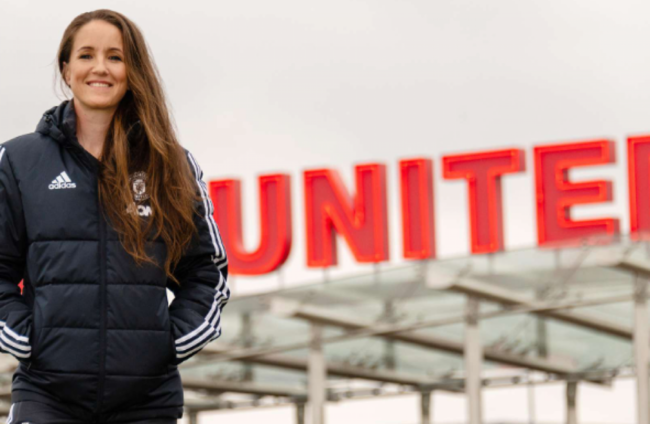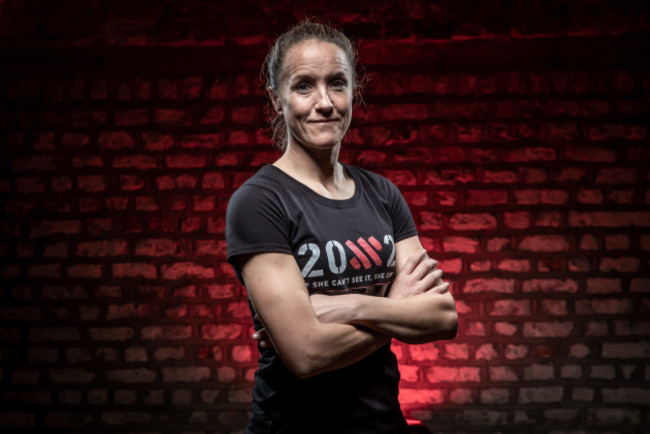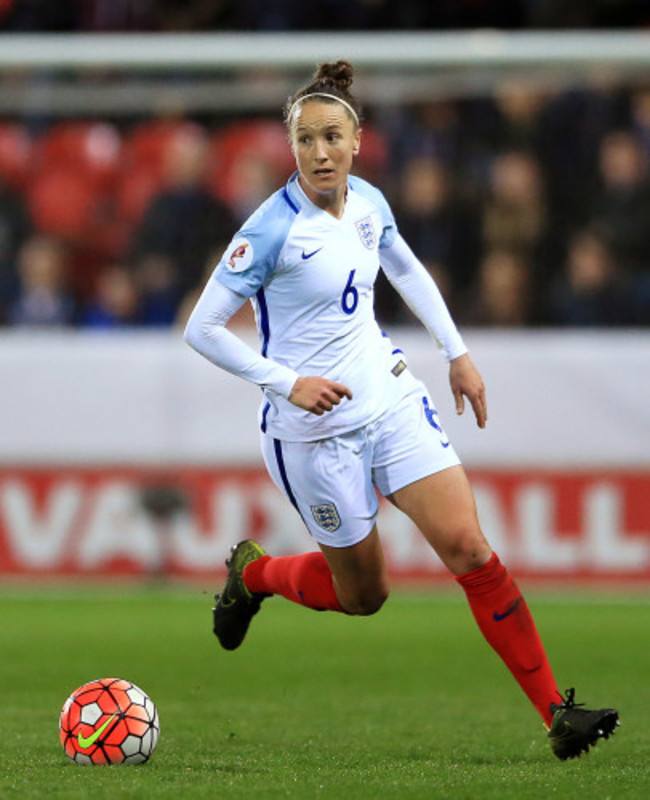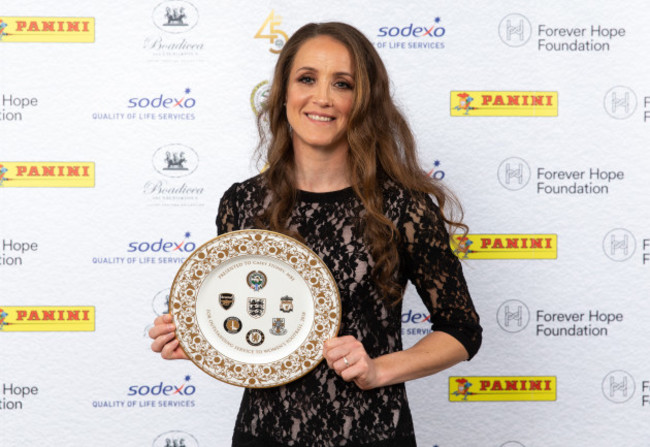WHY ONLY NOW? Why was it not until 2018 that Manchester United, one of the biggest football clubs in the world, established its first-ever professional women’s side?
Casey Stoney, their manager, was as confused as anyone.
“It was one of my questions when we interviewed,” she explained at the launch of the 20×20 initiative on Monday. “Bear in mind I was assistant coach at the international team so it was a big jump for me to leave that.
“My question was, ‘Why now?’ I was as critical as anyone else.
“But I get it now, because of the whole, ‘We don’t do things unless we do things properly’. They had to have a whole restructure at the club. At the time they didn’t feel that they could resource it properly.
“They didn’t feel like they had enough staff. In the last four years they’ve added 70 staff to their infrastructure, which meant all of those staff could now support the women’s team.
“They don’t do anything by half measures. They wanted to take their time. It also came at a time when the FA restructured the league. You couldn’t enter at any point before that.”
The Women’s Super League (WSL) kicked off in 2011 and was restructured ahead of the 2018/19 season, the perfect time for United to launch their attack, Stoney adds.
Manchester City joined the top flight ranks in March 2014 so their cross-city rivals felt that it would be better to let that hype die down to an extent too.
And then came this year.
“When the restructure came in they were like, ‘We’re in a place now to do it properly. We’ve got the infrastructure in place and we’re in a position where we can actually look after the team and integrate it,” 36-year-old Stoney adds.
“The biggest thing they said to me is ‘We want you to feel a part of the club and not apart from the club’.”
While Manchester City, Arsenal and Chelsea are among the 11 teams in the Super League, United ply their trade in the second tier, the Championship.
There is some ‘abuse,’ Stoney says for not being in the top ranks. With Manchester United comes expectation, and many fans don’t realise they’re actually not in the highest division. There needs to be more education there.
But why are they in the second tier? (Keep in mind, they won one of their opening games 12-0 and they’re yet to concede a goal in league football.)
“The club found out they got the licence on 28 May,” Stoney explains. “I got announced on 8 June, pre-season started on 9 July. That gave us four weeks to recruit 21 players, six full-time staff, and put everything in place.
“If we had gone in at the top league and got any of that wrong, it wouldn’t have looked great. Manchester United do everything properly so they’d rather make slow, conscious, right decisions than quick, bad, wrong decisions.
“We’ve gone in that league so we can get the processes right, the structure right. Also — Manchester United’s a massive club — to give the players a chance to bed in out of the limelight a little bit. To give me a chance to get things right, and make mistakes. We’re going to make mistakes, it’s our first year. We know that.”
“The club’s mantra was very much: we will crawl, we will walk and then we will run.”
The Red Devils women’s side play their matches at the 12,000 capacity Leigh Sports Village, the same venue as the men’s U23s.
“My ambition is that we could potentially fill that one day. Then we go from there and we keep growing the fan base,” she says, before Old Trafford comes up in conversation.
She understands that the iconic venue is almost kept sacred for the first team but hopes that her side can have a run-out there when they’re ready.
“Until we grow the fan base to a point where we can potentially get a really good crowd, it’s (Old Trafford) not the right stadium for us.
“We will have a game on it this season I do believe, which would be good. It will be interesting to see what kind of crowd we can draw if we do well at the end of the season. We might (get a league game on it) It’s in discussions at the moment.”
The professional aspect of the game is brought up and what exactly it means when it’s said that a female player is professional across the water. They get paid a wage, she says, and they have a minimum of 26 contact hours on the pitch per week.
Salaries range from £12,000 to £70-80,000, but there’s talk that at bigger clubs, some players are on three-figure packages.
At the 20×20 launch there is, of course, no shortage on conversation, argument and debate around women in sport, equality and parity so it’s interesting to hear some of Stoney’s personal stories from through the years.
It’s ‘intimidating’ at times, being a female manager. Even looking back in time, she recalls incidents at coaching courses she attended while she was still a player.
“People would genuinely say to me, ‘Do you shower together?’ Are we still having that conversation? ‘Of course we do, do you?’ Like, come on. I’m in elite sport, we’re elite sportswomen and we still face it.
“I won a special achievement award this year and I got given a plate with all the clubs I played for. It was a really special moment and someone tweeted me saying, ‘That’s a really nice plate it can go in your kitchen where you belong.’
“I responded in the only way I know how which was quite tongue in cheek. I said ‘I’ll put my plate in my kitchen with my 130 caps, my four FA Cups, my three league titles….’”
Don’t comment on what you don’t know, she adds. Give it a chance.
And that’s what 20×20 is pushing.
“I think it’s brilliant,” the former England star concludes on the initiative.
“It gives you absolutely no grey areas. You have got to action something, because we all talk. We do a lot of talking but actually, we need to do something today and something tomorrow.
“We need to make sure businesses are investing, sponsors are coming on board, broadcasters are making a difference.
“I would love an initiative like this across in England because it makes people stand up and actually do things.”
- Updated 12.50pm
20×20 is a new campaign is calling on the people of Ireland and all those involved in Irish sport and physical activity to get behind female sport in a concerted effort to increase media coverage, boost attendances and ultimately, grow involvement in female sport and physical activity by 20% by the end of 2020.
Subscribe to our new podcast, Heineken Rugby Weekly on The42, here:




